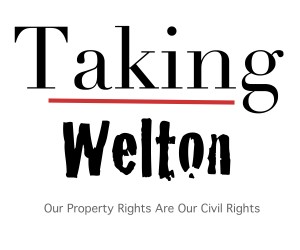U.S. Constitution Fifth Amendment of the Bill of Rights
15 December 1791
“No person shall be held to answer for a capital, or otherwise infamous crime, unless on a presentment or indictment of a Grand Jury, except in cases arising in the land or naval forces, or in the Militia, when in actual service in time of War or public danger; nor shall any person be subject for the same offense to be twice put in jeopardy of life or limb; nor shall be compelled in any criminal case to be a witness against himself, nor be deprived of life, liberty, or property, without due process of law; nor shall private property be taken for public use, without just compensation.”
Colorado Constitution Article II Section 14 and Section 15
1 July 1876
Section 14:
“Taking Private Property for Private Use
Private property shall not be taken for private use unless by consent of the owner, except for private ways of necessity, and except for reservoirs, drains, flumes or ditches on or across the lands of others, for agricultural, mining, milling, domestic or sanitary purposes.”
Section 15:
Taking Property for Public Use Compensation, How Ascertained
“Private property shall not be taken or damaged, for public or private use, without just compensation. Such compensation shall be ascertained by a board of commissioners, of not less than three freeholders, or by a jury, when required by the owner of the property, in such manner as may be prescribed by law, and until the same shall be paid to the owner, or into court for the owner, the property shall not be needlessly disturbed, or the proprietary rights of the owner therein divested; and whenever an attempt is made to take private property for a use alleged to be public, the question whether the contemplated use be really public shall be a judicial question, and determined as such without regard to any legislative assertion that the use is public.”
Colorado House Bill 14-1375
Introduced 11 April 2014 and assigned to Finance Committee
Sponsors: Brian DelGrosso (R) District 51 and Lois Tochtrop (D) District 24
Colorado House Bill 06-1411
Approved 6 June 2006
“If the condemnation action involves a taking for the eradication of blight, the bill requires the condemning entity to demonstrate, by clear and convincing evidence, that the taking of the property is for a public use. This bill also precludes the taking of private property for transfer to a private entity for the purpose of economic development or tax revenue enhancement.”
Colorado House Bill 04-1203
Approved 4 June 2004
“additional requirements on urban renewal projects when condemned property is to be transferred to a private party. In these instances, House Bill 04-1203 prohibited property from being condemned solely on the economic performance of the property and required that a determination of physical slum or blight be reached in order for municipalities and urban renewal authorities to condemn property.”
Colorado House Bill 99-1326
Approved 3 May 1999
“House Bill 99-1326 placed more requirements on local governments and urban renewal authorities to approve urban renewal plans by adding more factors to the definition of “blight.” It also required that a minimum of four factors be present for a blight designation.”
Information on Colorado House Bills is sourced from:
Raegan Robb. Issue Brief. Colorado Legislative Council. Number 06-09. 6 July 2006.
